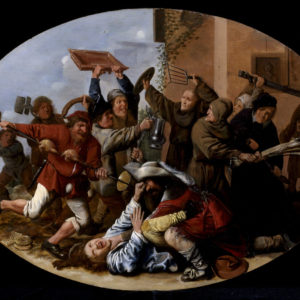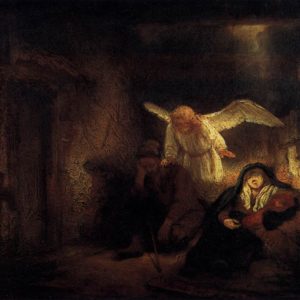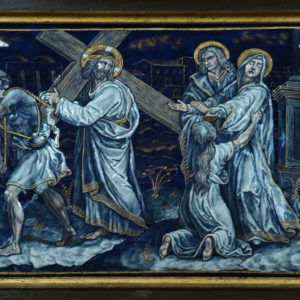Should Christians be patriotic? Is it a violation of their duties towards God, or an expression of those duties? And why does St. Thomas Aquinas speak of patriotism as a form of piety?
Tag: liturgical year
A Faith in Vain: St. Paul vs. “Progressive” Christianity
How St. Paul might answer the latest “progressive Christian” attack on Biblical Christianity.
The Meaning of “Lent” and “Easter” (Is Probably Not What You Think)
Today’s Ash Wednesday, the first day of Lent. But what does the word “Lent” mean, and what can we learn from it? In many languages, the term for this season means something like “The Fast” or “Fasting-Time.” Not so with English.
The Logic of Revelation
Epiphany is the feast day celebrating (as the name suggests) Revelation. So how does God’s self-revelation answer the objections of moral relativists, and of Mormons and Protestants who believe in a Great Apostasy?
Through Jewish Eyes: A New Way to Understand the Advent and Christmas Scriptures
You’ve heard the Biblical accounts of the Virgin Birth, but I’m willing to bet that (like most people) you misunderstand them. For example, were Mary and Joseph married at the time of the Annunciation? Why does Matthew refer to Joseph as Mary’s “husband,” and yet common translations of Luke have Mary saying to the angel, “I have no husband” (Matt. 1:19; Luke 1:34)? What does it mean that Joseph “took his wife,” or that Joseph “knew her not until she had borne a son” (Matt. 1:24-25)? And finally, why did Joseph consider divorcing Mary, and why does the angel respond by telling him not to be afraid?
What Makes a “Holiday”? A Theory of Festivity
What makes a holiday a holiday? What makes an event “festive”? Josef Pieper (author of “Leisure: The Basis of Culture”) explored this in a work called “In Tune with the World: A Theory of Festivity,” and it might be a good think to wonder about as we enter into the week of Thanksgiving.
What are the “7 Sorrows of Mary”?
Today is the Feast Day of Our Lady of Sorrows, one of the strangest titles for the Virgin Mary. Why do we call her that? Because of her “Seven Sorrows.” And what are those? Seven moments in which she was invited to share in her Son’s suffering. Even Protestants who don’t normally have any sort of devotion to Mary should be able to appreciate the Scriptural foundation of this devotion. The Seven Sorrows are…
The Historical Case for the Resurrection
As we celebrate the Resurrection of Jesus Christ this octave, let’s talk about the case against the Resurrection. One of the most common reactions to the Resurrection is simply that the idea is ridiculous. But in fact, there’s strong HISTORICAL evidence for the truth of the Resurrection that has to be grappled with, regardless of your religious persuasion. Here’s a little bit of it.
Herod and Pilate—on Trial
It’s no coincidence that Herod’s life and Pilate’s are also intimately bound up with the other’s. St. Luke mentions that, after the trial of Jesus, “Herod and Pilate became friends with each other that very day, for before this they had been at enmity with each other” (Luke 23:12). And in each case, we might say that it’s really Pilate and Herod who get put on trial. Why? Because these two allegedly powerful men each have before them a man they personally know to be innocent, a man that they want not to execute. Whether they know it or not, this is the most important moment in each man’s life, the moment for which he will be remembered for all of history.
Why is Sin Such Damned Fun?
We’re about to enter into Good Friday, the day on which Jesus died for our sins. So what’s the deal with sin? It’s very easy to think of sin as fun, and virtue as sort of missing out on the fun for the sake of some future reward: a sort of Mardi Gras v. Lent contrast. Why IS such (literally) damned fun? And how do we respond to the charge that we’re just anti-fun?









